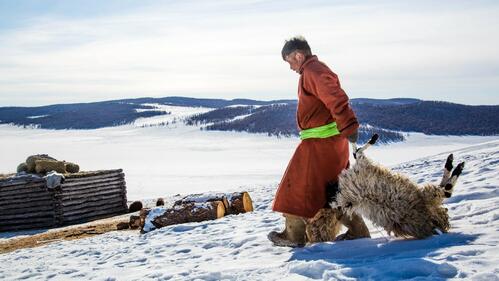Cold waves
A cold wave, sometimes known as a cold snap or deep freeze, is a weather event involving a cooling of the air, or the invasion of very cold air, over a large area. It is marked by a drop of average temperature well below the averages of a region. Cold waves can have negative impacts on people, crops, properties and services. They can be preceded or accompanied by significant winter weather events, such as blizzards or ice storms. And they can feel even colder during periods of high winds.

Do you know how to prepare for a cold wave?
Assess and plan
Know your area's risks for extreme weather conditions and communication channels that provide early warning for extreme cold and winter storms. Be aware of hospitals and medical centres nearby in case of hypothermia (shivering, exhaustion, confusion, slurred speech) or frostbite (cold, numb, white/blue, hard or blistered skin, pins and needles). And if you own crops or livestock, understand the risks and tolerances of each species to cold temperatures.
Reduce risks
The main concerns in the home during a cold wave are loss of heat, power, telephone services and shortage of supplies. Have an emergency heat source, such as a fireplace or stove, that is properly ventilated. Review your generator safety (never operate it in an enclosed space) and make sure your carbon dioxide detector is working. Outside the home, prepare your vehicle properly for winter conditions. And be aware of at-risk groups in your community, such as older people, and have a plan to support them.
Prepare to respond
Stock up in advance on bottled water (in case pipes freeze) and several days of food supplies if a snowstorm is expected. Make sure you have appropriate clothing—warm socks, gloves, hats, scarves—and if you get wet, change into dry clothing as soon as possible. Know how to recognize symptoms of hypothermia and frostbite and avoid overexertion (which can cause cardiac arrest), often caused by clearing snow.
